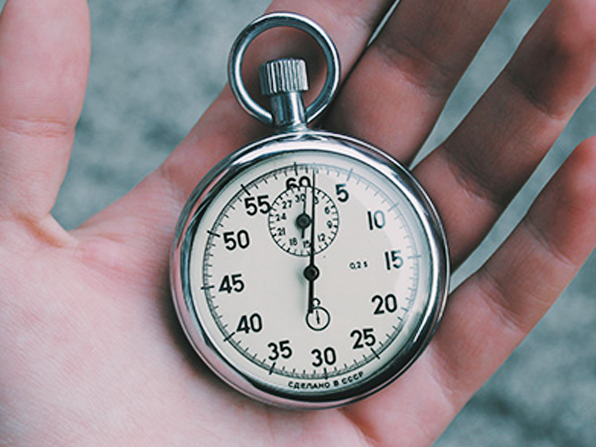
How this versatile supplement can help you achieve your weight-loss and health goals
If you're at all familiar with the world of weight loss supplementation, you've likely heard about Garcinia Cambogia. Over the past few years, this natural supplement has increased in popularity, with people worldwide adding it into their daily diets to help drop unwanted pounds.
But in addition to weight loss, Garcinia Cambogia also boasts many other benefits that make it a fantastic addition to your regimen.
What is Garcinia Cambogia?
Garcinia Cambogia is a plant that has origins in Southeast Asia, India, and Africa. The various parts of the plant have several uses [1], but it's the extracts of Garcinia Cambogia which have powerful health and wellness benefits, including weight loss, appetite reduction, and obesity prevention.[2]
The main components of Garcinia Cambogia that make it so effective for weight loss are hydroxycitric acid (HCA) and lactone. HCA is known for its role in limiting appetite and fat oxidation[3]. In addition to HCA and lactone, Garcinia Cambogia also contains many amino acids, which can help synthesize muscle and aid in fat loss.[4]
Benefits of Garcinia Cambogia
While weight loss is one of the most commonly cited benefits of Garcinia Cambogia, this versatile supplement can help support a healthy lifestyle in many other ways.
Promotes Weight Loss
We’ve already mentioned how HCA plays a critical role in reducing body fat by oxidizing fat. Clinical studies have shown that after 16 weeks in a trial group of 39 overweight people, Garcinia Cambogia extract decreased total fat, belly fat, and fat under their skin.[5] Studies in animals have also shown that when animals ingest Garcinia Cambogia, they experience smaller weight gains than placebo groups.[6]
Targets Fat
Garcinia Cambogia can also target visceral, subcutaneous, and total fat. A twelve-week study showed promising fat-torching effects for the group taking the supplement versus placebo. This same group also experienced lower rates of reaccumulating fat after reducing or stopping their Garcinia Cambogia intake.[7]
Reduces Appetite
Garcinia Cambogia plays a critical role in appetite suppression. By blocking the ATP citrate lyase, the body produces more glycogen in the liver.[8] This response increases the feeling of fullness. Additionally, the supplement also increases serotonin levels, which play a role in regulating hunger.[9]
Improves Workout Effectiveness
Some small trials have shown that including Garcinia Cambogia in your diet can improve workout effectiveness. One study showed that male participants experienced increased fat burn and decreased carbohydrate breakdown, leading to enhanced athletic performance.[10] An additional study of female participants demonstrated that women working out while taking Garcinia Cambogia experienced increased fat reduction and enhanced exercise performance.[11]
Lowers Blood Sugar Levels
Garcinia Cambogia’s health benefits also include promoting healthy blood sugar levels, which can help stave off diabetes.
In recent animal studies, Garcinia Cambogia extract reduced glucose intolerance, promoting lower levels of blood glucose. In studies of human subjects, a Garcinia Cambogia supplementation program has also been shown to help stabilize fasting blood sugar levels in overweight adults.
Achieve Your Results Today
Adding Garcinia Cambogia to your diet is easy with a high-quality supplement. Be sure to look for one that maximizes your HCA intake to reap the fat- and weight-torching benefits this natural supplement affords.
To maximize your weight loss and enjoy the many other benefits of Garcinia Cambogia, we recommend STAVE from the BELDT Labs Bedrock Series. STAVE reduces appetite and blocks fat cell production. Unlike other Garcinia Cambogia products on the market that include trace amounts of HCA, STAVE is composed of 50% HCA to kickstart your results. The addition of Chromium Picolinate, a clinically proven mineral that reduces body fat, further promotes results by helping you maintain a healthy blood sugar level.
[1] Abraham, Z., Malik, S.K., Rao, G.E. et al. (2006). Collection and Characterisation of Malabar Tamarind [Garcinia Cambogia (Gaertn.) Desr.]. Genet Resour Crop Evol 53, 401–406. https://doi.org/10.1007/s10722-004-0584-y
[2]Onakpoya, I., Hung, S. K., Perry, R., Wider, B., & Ernst, E. (2011). The Use of Garcinia Extract (Hydroxycitric Acid) as a Weight loss Supplement: A Systematic Review and Meta-Analysis of Randomised Clinical Trials. Journal of obesity, 2011, 509038. https://doi.org/10.1155/2011/509038
[3] Y.S. Lewis, Y.S., Neelakantan, S. (1965) Hydroxycitric acid—the principal acid in the fruits of Garcinia Cambogia desr., Phytochemistry, 4(4), 619-625. https://doi.org/10.1016/S0031-9422(00)86224-X.
[4]Iinuma, M., Ito, T., Miyake, R., Tosa, H., Tanaka, T., Chelladurai, V. (1998). A xanthone from Garcinia Cambogia,
Phytochemistry 47(6), 1169-1170. https://doi.org/10.1016/S0031-9422(98)80096-4
[5]Hayamizu, K., Ishii, Y., Kaneko, I., Shen, M., Okuhara, Y., Shigematsu, N., Tomi, H., Furuse, M., Yoshino, G., & Shimasaki, H. (2003). Effects of Garcinia Cambogia (Hydroxycitric Acid) on visceral fat accumulation: a double-blind, randomized, placebo-controlled trial. Current therapeutic research, clinical and experimental, 64(8), 551–567. https://doi.org/10.1016/j.curtheres.2003.08.006
[6]Sripradha, R., & Magadi, S. G. (2015). Efficacy of Garcinia Cambogia on body weight, inflammation and glucose tolerance in high fat-fed male Wistar rats. Journal of clinical and diagnostic research: JCDR, 9(2), BF01–BF4. https://doi.org/10.7860/JCDR/2015/12045.5577
[7]Hayamizu, K., Ishii, Y., Kaneko, I., Shen, M., Okuhara, Y., Shigematsu, N., Tomi, H., Furuse, M., Yoshino, G., & Shimasaki, H. (2003). Effects of Garcinia Cambogia (Hydroxycitric Acid) on visceral fat accumulation: a double-blind, randomized, placebo-controlled trial. Current therapeutic research, clinical and experimental, 64(8), 551–567. https://doi.org/10.1016/j.curtheres.2003.08.006
[8]Venkateswara Rao, G., Karunakara, A.C., Santhosh Babu, R.R., Ranjit, D., Chandrasekara Reddy, G. (2010). Hydroxycitric acid lactone and its salts: Preparation and appetite suppression studies. Food Chemistry (120)1, 235-239, https://doi.org/10.1016/j.foodchem.2009.10.014.
[9] Ohia, S. E., Awe, S. O., LeDay, A. M., Opere, C. A., & Bagchi, D. (2001). Effect of hydroxycitric acid on serotonin release from isolated rat brain cortex. Research communications in molecular pathology and pharmacology, 109(3-4), 210–216.
[10] Lim, K., Ryu, S., Ohishi, Y., Watanabe, I., Tomi, H., Suh, H., Lee, W. K., & Kwon, T. (2002). Short-term (-)-hydroxycitrate ingestion increases fat oxidation during exercise in athletes. Journal of nutritional science and vitaminology, 48(2), 128–133. https://doi.org/10.3177/jnsv.48.128
[11] Lim, K., Ryu, S., Nho, H. S., Choi, S. K., Kwon, T., Suh, H., So, J., Tomita, K., Okuhara, Y., & Shigematsu, N. (2003). Hydroxycitric acid ingestion increases fat utilization during exercise in untrained women. Journal of nutritional science and vitaminology, 49(3), 163–167. https://doi.org/10.3177/jnsv.49.163




